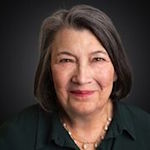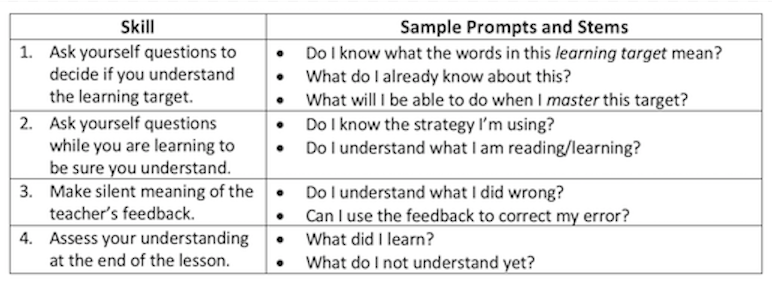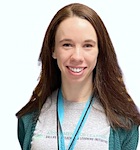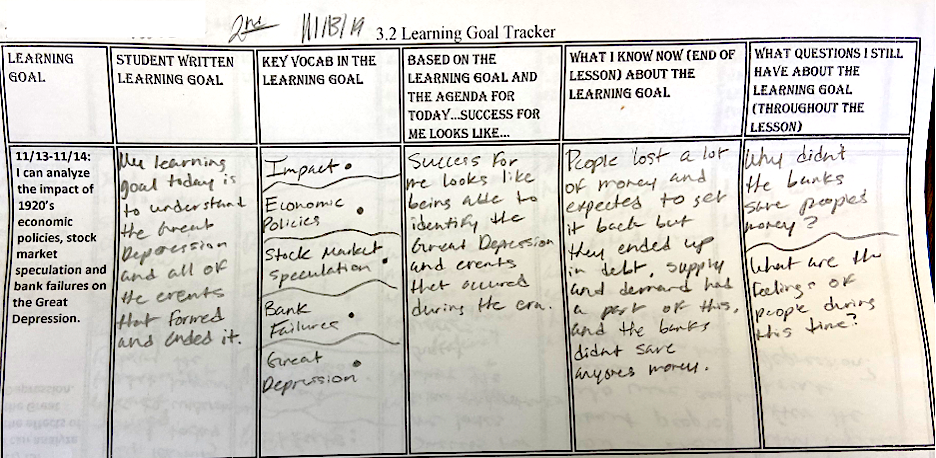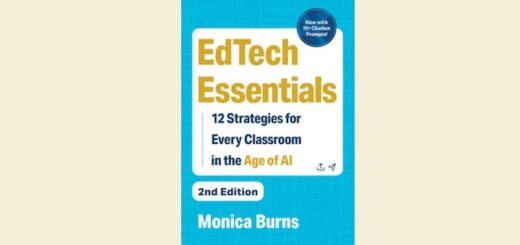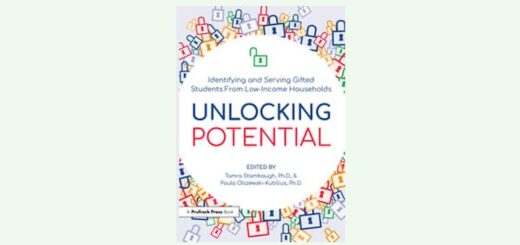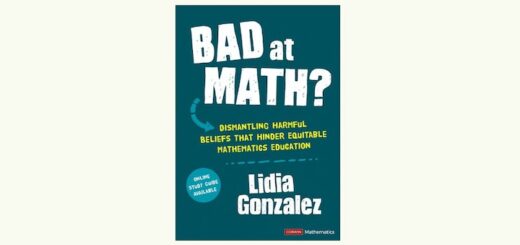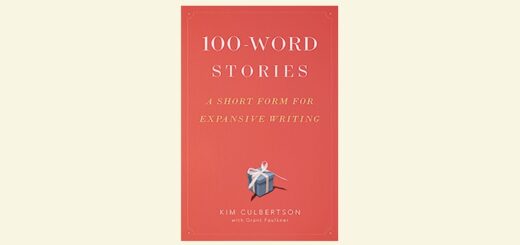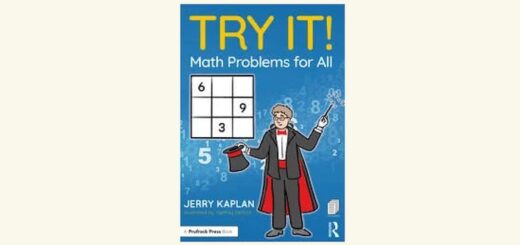Teaching Students How to Assess Themselves
A MiddleWeb Blog
By Jackie A. Walsh with Emily Brokaw
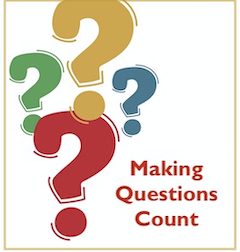
Had I been asked this while I was a student, I most likely would have responded, “to complete my work and prepare for tests.” In other words, to comply with what the teacher asked me to do.
As we’ve moved from teacher- to student-centered classrooms over the course of my career, I’ve asked myself this question many times. My current response is embodied in the figure below, excerpted from my book Questioning for Formative Feedback.
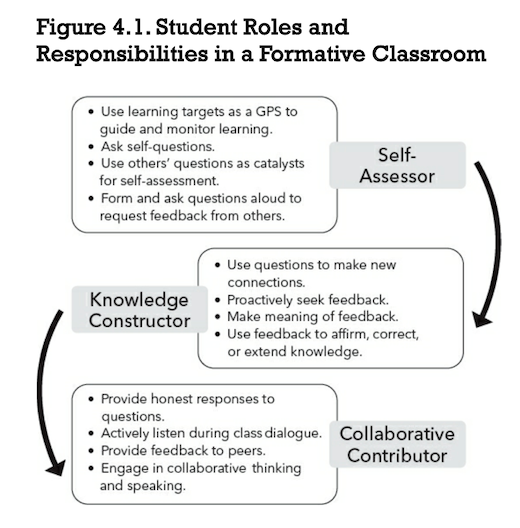
Being more explicit about learner roles is a gateway to our productive engagement with students in both our questioning and feedback processes. Each depends upon teacher and student partnerships for its effectiveness.
Developing Student Skills As Self-Assessors
In this installment of Making Questions Count, instructional coach Emily Brokaw and I focus on the first role: Student as Self-Assessor. (You’ll hear Emily’s thoughts in her own voice, below.)
As we spotlight this role, I’m reminded of a theme running through the literature on formative feedback: the ultimate goal of formative feedback is to develop self-regulating learners.
If students are to self-regulate or guide their own learning within and beyond our classrooms, they must develop their skills as Self Assessors. As they go about this work, they use others’ questions as catalysts for self-assessment and also ask questions of their own – silently to monitor their learning and aloud to seek information required to check for understanding.
Not all students arrive in our classrooms – regardless of the grade level – with the ability to self-question. We can support their development of this capacity with two strategies: providing prompts and stems; and including self-questioning in our daily learning targets.
Provide Sample Prompts and Stems
Consider identifying age-appropriate prompts and stems and creating anchor charts or individual copies for student use. Here is a starter set connected to discrete self-questioning skills (click to enlarge).
 Embed Skills Into Daily Learning Targets
Embed Skills Into Daily Learning Targets
In addition to content-focused daily learning targets, consider creating a set of grade-appropriate targets that focus on the learning or process skills of particular importance in the lesson of the day. Sample targets that can be adapted to all grade levels include:
- I can ask myself questions to self-assess my progress.
- I can use the pause following a question to prepare to respond. (Think Time 1)
- I can use the pause following my response to a question to add to or correct what I said. (Think Time 2)
- I can use the pause following a classmate’s response to a question to decide if I agree or disagree and prepare to share why.
- I can ask questions out loud when I don’t understand or when I’m confused.
- I can use my teacher’s and classmates’ explanations to assess and correct my thinking.
Like other skill-based processes, self-assessment develops over the course of a student’s academic career. Even the youngest learners can be taught to use silence to ask themselves questions. If students are to strengthen these skills as they advance from one grade level to the next, schoolwide commitment to this goal is a must.
Emily, how do you in your role as instructional coach support teachers in shifting their practice and providing opportunities for their learners to develop their self-assessment capabilities?
Emily Brokaw: Scaling Student Self-Assessment Schoolwide
My secret weapon when coaching teachers to support student self-assessment is my own experience in the classroom. For the past six years I’ve been studying and developing expertise in formative assessment practices including teacher clarity, effective feedback and questioning, and student self-assessment.
Once a strong foundation of clarity is present in the classroom with effective learning goals and success criteria, incorporating self-assessment routines is an easy and fun next step. I don’t want those adjectives of easy and fun to overtake the true impact of student self-assessment, because it’s a powerful step toward giving students ownership of their learning and helping them develop as expert learners.
Throughout my time in the classroom and through coaching observations I’ve been able to pick up a plethora of strategies that support students in making self-assessment a routine practice. Simple rating systems using either colors, emojis or a 1,2,3 scale are a quick check for both teachers and students that provides invaluable data on what has been learned and where to go next.

The important thing is for each teacher to select a limited number of strategies that work for their grade and content area and use these intentionally and consistently. Provide students with routine opportunities to reflect on their progress in this area – keeping the purposes of self-assessment in the foreground.
Next Time: Knowledge Constructors and Collaborative Contributors
In our last installment of this series, we’ll share our experiences supporting students in developing skills as Knowledge Constructors and Collaborative Contributors. Until then, we encourage you to ask your students what they believe to be their roles and responsibilities as learners. We also hope you’ll reflect with your students on their capacity to fulfill the role of Self-Assessor.
See the entire Making Questions Count series here.
Jackie Acree Walsh, Ph.D. is an author and consultant focusing on quality questioning. Jackie is author or co-author of six books, two of which provide the basis for this blog series: Questioning for Formative Feedback: Meaningful Dialogue to Improve Learning (ASCD, 2022) and Empowering Students as Questioners: Skills, Strategies, and Structures to Realize the Potential of Every Learner (Corwin, 2021). Follow Jackie on X/Twitter @Question2Think. Find all of her earlier MiddleWeb articles here.
Emily F. Brokaw is a Campus Coordinator at Molina High School in the Dallas, Texas Independent School District where she leads her campus’s work with Assessment for Learning and helps to create the conditions for all students to become lifelong learners! Prior to this role, she was a social studies teacher for six years. Emily has a Masters in the Art of Teaching from Texas A&M University-Commerce and is currently pursuing a Masters in Urban Educational Leadership from SMU.

